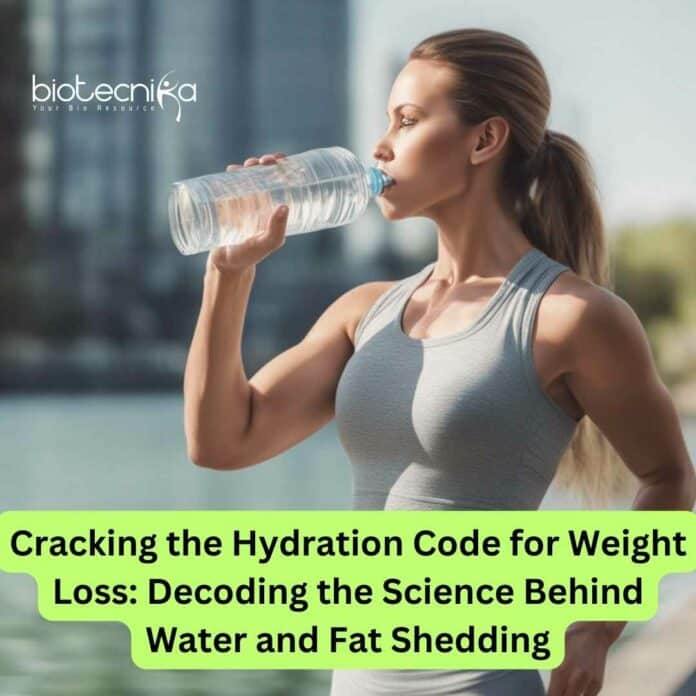Weight Loss Research – Decoding the Science Behind Water and Fat Shedding
If you’re striving to shed some pounds, you’ve probably heard the advice to drink lots of water every day – some sources even recommend guzzling down as much as a gallon (about 4.5 liters). The idea behind this is that water can boost calorie burning and curb your appetite, ultimately aiding in weight loss.
But, let’s take a closer look at the scientific evidence to see if these claims hold water.
Myth 1: Water Burns Calories
A small study involving 14 young adults found that drinking 500 ml of water increased the amount of calories the body burns while at rest by around 24 percent. Although this sounds promising, this effect lasted only for an hour and didn’t result in a significant difference. For a person weighing around 70 kg, drinking 500 ml of water would only burn an extra 20 calories – equivalent to a small biscuit.
Another study with eight young adults showed a slight increase in calorie burning when drinking very cold water, leading to a modest 4 per cent rise in calories burned. This might be because the body expends energy to warm up
the cold water to body temperature, or due to the increased energy and effort needed for the kidneys to process the larger volume of fluid. Once again, this effect was short-lived, lasting about an hour.In reality, even though science supports the possibility of water increasing calorie burn, the actual net increase is minimal. For instance, even if you were to consume an additional 1.5 litres of water each day, it would save fewer calories than you’d find in a piece of bread. It’s important to note that these studies were conducted on young, healthy adults. More research is needed to determine if similar effects are seen in different age groups, such as older and middle-aged adults.
Myth 2: Water Reduces Appetite When Consumed with Meals
The idea here is that drinking water before a meal can make you feel fuller and reduce the amount of food you eat. While there’s some support for this concept, particularly among middle-aged and older adults, it’s not as straightforward for those aiming to lose weight.A study demonstrated that middle-aged and older adults lost about 2 kg over a 12-week period when they drank water before meals unlike those who didn’t consume water with their meals. However, younger participants (aged 21-35) didn’t experience any weight loss, regardless of whether they drank water before eating food or not.
Weight Loss Research – Decoding the Science Behind Water and Fat Shedding
This study had a limitation – it lacked blinding, which means participants knew they were drinking water before meals. This awareness might have led some participants to intentionally alter their food intake, hoping it would boost their weight loss efforts. This doesn’t explain why the effect wasn’t seen in young adults, so further research is needed to uncover the reason.
Many of these studies focus on whether participants consume less food during one meal after drinking water. While this suggests potential for weight loss, strong evidence is lacking to show that reduced appetite consistently leads to long-term weight loss. It’s possible that our bodies are wired to maintain their size, which could explain why foods claiming to make you feel fuller for longer don’t legally advertise weight loss benefits in Europe.
So, while water might have some appetite-suppressing effects, it’s unlikely to cause substantial long-term weight change. It could be more about consciously adjusting your diet than relying solely on water. Water Alone Isn’t Enough Water alone isn’t a magic solution for regulating the appetite. If it were, our ancient ancestors might have faced starvation. Though appetite and feeling full don’t perfectly align with weight loss, they could offer a useful starting point. The sensation of fullness is linked to our stomach. When we eat, our stomach’s stretch receptors are triggered, leading to the release of hormones that signal satiety (feeling full).
However, water, being a liquid, swiftly exits the stomach, failing to truly satisfy hunger. Remarkably, due to the stomach’s shape, liquids can bypass semi-solid food being digested in the lower part of the stomach. This means water empties from the stomach rapidly, even if consumed after a meal, possibly not prolonging the feeling of fullness.
For those aiming to consume less and lose weight, drinking excessive water might not be the most effective approach. But mixing water with other substances like fibre, soups, or vegetable sauces could slow down stomach emptying, helping you feel full for longer. While water might not directly trigger weight loss, it remains a healthy beverage choice. Swapping calorie-dense drinks like soda and alcohol for water could easily cut down your daily calorie intake, potentially aiding in weight loss.
Weight Loss Research – Decoding the Science Behind Water and Fat Shedding



























